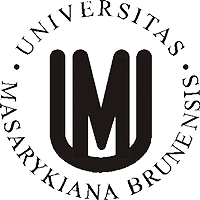Important dates
| March 23: | Deadline for abstracts |
| March 31: | Notification of abstract acceptance |
| May 5: | Deadline for papers |
| May 21: | Notification of paper acceptance |
| June 25: | Camera ready submission of papers |
| October 9-11: | Conference ISESS 2013 |
Smart and mobile devices used for Environmental Applications
Convenor: Denis Havlik
Thanks to a smartphone (r)evolution, the smart sensing devices with networking capabilities are not only inexpensive but often already deployed on the field and waiting to be used for the greater good. Moreover, these devices are on the way to become a primary communication and information platform for a majority of the world’s population.
The promise of inexpensive or “zero price” ubiquitous sensing and crowdtasking has sparked an avalanche of cross-domain research and development activities. In some cases, the results exceeded all expectations. Nevertheless, the traditional users of environmental information remain sceptic concerning the quality and usability of the information from humans and inexpensive sensors
In this session, the participants will discuss their visions and experiences with use of smart and mobile devices in environmental applications as well as in the cross-domain applications with strong environmental bias – including, but not limited to “environmental crisis management”, “environment and health” or “environment and traffic”. The presenters should cover the issues of feasibility, usability, data quality, and reliability of the applications using the smart and mobile networked devices in one or more of the following contexts:
- Opportunistic sensing: where and how can we use existing smart devices, for instance smartphones or sensors built in the vehicles?
- Human sensing: what can we gain from subjective and objective observations by volunteers and/or professional surveyors?
- Inexpensive sensing: what can we gain by attaching additional low-cost sensors to existing platforms or by deploying a dedicated network of inexpensive mobile sensing devices?
- Crowdtasking: coordination of professional and volunteer field workers, especially in the context of observation reporting and quality assurance.
Finally, all contributors are kindly asked to present their vision for assuring the financial and organisational sustainability of the applications, including (where appropriate) the incentives for the volunteers to try out the application and continue using it beyond the initial testing phase.



